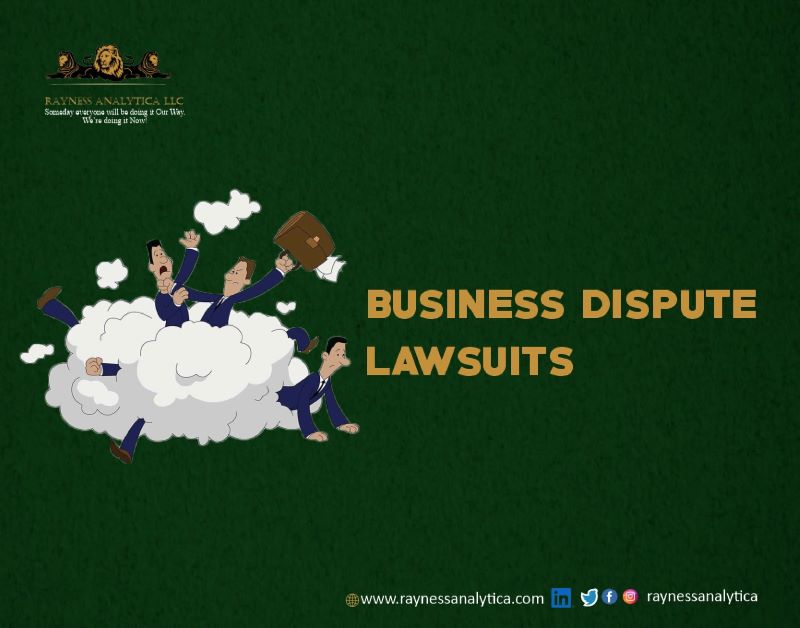Steps Companies Should Take Amidst Covid19 (Coronavirus)
The novel coronavirus (COVID-19) outbreak, first identified in Wuhan, China, has spread beyond China’s borders to dozens of countries, infecting tens of thousands of people and causing a mounting number of fatalities. It is now responsible for more deaths worldwide than the 2002-2003 SARS outbreak. Health research institutions across the world are confirming new cases of coronavirus on almost a daily basis across a growing number of countries. Against this backdrop, the Kenyan Government has issued its highest-level advisory, telling Kenyan citizens, “Do Not Travel to countries highly affected by coronavirus.” The Uhuru administration is also blocking entry into Kenya of foreign nationals who visited affected countries like China. Additionally, Chinese authorities are issuing force majeure certificates to Chinese businesses.
Companies face a series of employment-law, tort, contract, insurance, disclosure, and other considerations as they con-front the impact of the coronavirus. In addition to the Kenyan law issues discussed in this White Paper, other juris-dictions impose their own coronavirus-related risks and obligations. Companies active in multiple regions should weigh these different legal regimes carefully, as they may occasionally be in tension.
LEGAL CONCERNS IN THE WORKPLACE
Prevention
The Occupational Safety and Health Act No. 15 of 2007 imposes a duty on employers to provide a workplace free from recognized hazards that are causing or are likely to cause death or serious physical harm. Employers in certain countries have a parallel common law duty to employees to take reasonable measures to minimize work-related injuries, including the spread of infectious diseases. To that end, some readily achievable measures employers can take to prevent the spread of the virus include adopting policies permitting ill employees to work from home or sending employees home if they disclose that they have symptoms of the virus.
In line with guidance published by the United Nations, Coronavirus disease (COVID-19), employers (upon a careful review of their specific circumstances) may elect to require that employees exhibiting symptoms of the virus not come to work. This would generally not conflict with the Persons with Disabilities Act, 2003.
Because: (i) if the illness turns out to be relatively mild like the seasonal flu, then it is not a covered disability; but
(ii) if the illness is significantly more severe, such that it may constitute a disability under the Act, then the employers’ measures are likely permitted under a direct threat defense. Before disciplining or terminating an employee who misses work out of fear of contracting the virus, employers should beware: In some jurisdictions, courts have found that the public policy exception to at-will employment provides a cause of action to employees terminated for missing work under conditions that pose a risk of communicable infection. Employers seeking to terminate individuals under these circumstances should seek legal counsel prior to making that decision.
Travel to Highly Affected Countries
At a minimum, employers whose business involves travel to highly affected countries like China should implement guidelines around travel to those countries. Employers should postpone nonessential business travels to countries and consider the need for other international travel until the virus is controlled. If essential, employers should respect employees’ unwillingness to travel rather than demanding they do so, in order to minimize the risk of future liability.
Moreover, employees who express their resistance to traveling to such countries may be engaging in protected concerted activity under the provisions of the of the Labour Laws and Employment Act, so companies must consider the potential consequences of interfering with these rights. If employees have traveled to such countries in the last couple of weeks for business or pleasure, companies should consider requesting employees to work from home for a period of advised by experts from the day they left such affected countries. If Kenyans abroad seek to return to Kenya, they should be informed of certain restrictions, including a manda-tory quarantine of up to 14 days for those returning from those countries.
Companies should take care to uniformly apply all inquiries, policies, and travel restrictions to avoid targeting employees of a certain nationality, ethnicity, or race. Banning nonwork travel to such countries, for instance, could potentially run afoul of discrimination laws if it targets only certain employees or if it is applied inconsistently. In a United States (US) recent decision out of the 11th Circuit, the EEOC argued that the ADA protected an employee who was terminated based on the employer’s fear that she would contract Ebola during a personal trip to Ghana. See Equal Emp’t Opportunity Comm’n v. STME, LLC, 938 F.3d 1305 (11th Cir. 2019). Though the court disagreed with the EEOC’s analysis, it recognized that the ADA prohibits discrimination because of an employee’s association or relationship with someone with a disability. If imposing a remote-work rule, employers should consider documenting the uniqueness of the situation to avoid future claims that their telework decisions have not been applied consistently across protected classes.
Workplace Absences
Employers should ensure they are complying with applicable sick leave laws. Additionally, employers must be prepared to notify eligible employees of their rights under the Employment Act, 2007. Depending on the severity of the illness, such as if the virus results in inpatient treatment or extended illness of the employee or a covered family member, an employee may qualify for Employment Act protected leave, which entitled to sick leave with full pay under section 30 of the Employment Act. In the event an employee does contract the virus while on the job (including while traveling for work), the interpretation of the Occupational Safety and Health Act has deemed the coronavirus a recordable illness subject to reporting requirements. Be prepared to address this requirement if necessary.
Communicating an Action Plan
As companies take steps to protect the well-being of their employees and minimize liability in the event an employee contracts the coronavirus, the tone and message they share with employees is critical. Once a company has prepared an action plan tailored to the needs of its industry and workforce, it should aim not to alarm employees while also clearly stating the steps taken to address the outbreak. A company should inform employees that it is monitoring the issue and that it values employee safety as its top priority.
POTENTIAL TORT LIABILITY
Beyond liability to their employees, employers also face potential liability for spreading the coronavirus if they act negligently. Although it may seem novel, “[f]or over a century, liability has been imposed on individuals who have transmitted communicable diseases that have harmed others.” Berner v. Caldwell, 543 So. 2d 686, 688 (Ala. 1989). Some courts consider it a “well-settled proposition of law that a person is liable if he negligently exposes another to a contagious or infectious disease.” Crowell v. Crowell, 105 S.E. 206, 208 (N.C. 1920). The California Supreme Court agreed with several other courts that “[t]o be stricken with disease through another’s negligence is in legal contemplation … no different from being struck with an automobile through another’s negligence.” John B. v. Superior Court, 38 Cal. 4th 1177, 1188 (2006) (quoting Billo v. Allegheny Steel Co., 328 Pa. 97, 105 (1937)). In Crim v. International Harvester Co., for example, an off-road vehicle manufacturer invited participants to test-drive its vehicles in the Arizona desert, where valley-fever spores were known to be present. 646 F.2d 161 (5th Cir. 1981). The Fifth Circuit upheld a negligence award against the manufacturer for negligently failing to warn and protect the participants of the test-driving event who contracted the illness. Id. Companies should have strong defenses to such claims, particularly if they exercise reason-able diligence, but it is important to understand the risks.
Liability for the spread of disease is often difficult to prove because duty, causation, and breach can be difficult to establish, particularly because diseases are often spread prior to symptoms emerging, and thus infected individuals may be unaware that they are spreading a disease. During pandemics such as the ongoing coronavirus, however, there is increasingly sophisticated technology to track the spread of disease and increased public awareness of the risks and appropriate preventative measures. With the Kenyan Government highest level warning, employers need to ensure they do not take unreasonable risks with their employees or the public.
When Haiti experienced an earthquake in 2010, the United Nations (“UN”) sent personnel to assist, including peacekeepers from Nepal. A subsequent outbreak of cholera that killed thousands of Haitians was traced to the Nepalese peace-keepers. A putative class of U.S. citizens and Haitians who claimed that they “have been or will be sickened, or have family members who have died or will die” as a direct result of the epidemic sued the UN, but the UN successfully asserted immunity to the claim. See Georges v. United Nations, 834 F.3d 88, 90 (2d Cir. 2016). Obviously, Kenya companies would not have the same immunity.
CORONAVIRUS AND FORCE MAJEURE
A Chinese agency is issuing force majeure certificates to domestic companies struggling to comply with contract requirements amid the coronavirus outbreak. Kenyan companies could face issues addressing force majeure when asserted by the other parties to their contracts or if they assert it them-selves because of supply chain disruptions or other issues created by the coronavirus. The application of force majeure will depend on the specific language of the clause and the law that applies under the applicable contract. Often such clauses will state that the event triggering force majeure must prevent compliance with the contract or make it unreasonably costly and may also require best efforts to eliminate force majeure. So, for example, disputes may arise about whether companies did enough to find alternative supplies not sourced from affected countries like China.
It is important when force majeure looks imminent to closely analyze the contract language and the current law in the gov-erning jurisdiction to determine whether the court or arbitration panel deciding the issues is likely to find that the coronavirus excuses performance. Some clauses may specifically mention epidemic or illness, while others may generally reference causes beyond the parties’ reasonable control, or “Acts of God.” Unless the contract specifically mentions epidemics or illnesses, there may be a dispute over whether the coronavirus’s impact on the parties’ performance constituted an “Act of God,” or whether it was sufficiently foreseeable that it should have been more specifically written into the contract. Finally, for companies intending to exercise force majeure, it is important to comply with all of the relevant notice provisions under the contract.
PUBLIC COMPANY DISCLOSURES
Publicly traded companies also need to assess whether their exposure to reduced employee movement, supply disruption, and other aspects of the fallout from the coronavirus require them to update or amend their risk disclosures.
TRANSPORTATION INDUSTRY
Air carriers, the maritime industry, and related industries need to be aware of specialized regulations addressing carriage of passengers and cargo and the ability to access entry points to Kenya. For example, local Kenyan air carriers, and foreign air carriers serving Kenya, must comply with Ministry of Transportation rules on nondiscrimination in the travelling industry, which cover passengers with communicable diseases.
The Kenyan Government should require the transport sector players to report information about certain passengers, and about onboard illness and deaths, and travelers from much affected countries by coronavirus must enter Kenya only through certain airports, Jomo Kenyatta International Airport (JKIA) at best.
INSURANCE AND BANKRUPTCY/RESTRUCTURING
For a company that anticipates that it may experience significant losses as a result of the coronavirus, it is important to evaluate the extent to which insurance can mitigate those losses.
For some industries, including the travel industry and service industries, the impact of the coronavirus has already been sub-stantial. Hotels, local enterprises, and transport sector are already experiencing mounting losses, and, notably, even the drop in Chinese oil consumption is impacting oil markets worldwide. The virus is also beginning to impact the manufacture of consumer goods. Companies around the globe are already announcing production shutdowns and other supply issues resulting from shortages of parts because of the coronavirus. For some companies, the fallout of the coronavirus may be substantial, and it is important to consult with bankruptcy and restructuring counsel as soon as possible.
CONCLUSION
As the coronavirus continues to spread, it is important for companies to evaluate all the ways that the virus could affect their business. It is not too late for employers to consider how to appropriately address employee concerns and comply with obligations. In each of the contexts addressed above, the specific facts and circumstances—including other jurisdictions in which a company is active warrant careful review. Employers should be mindful of legal risks and consequences that they may encounter when adopting measures to protect their employees and prevent the spread of the virus. Companies experiencing supply interruptions or other financial distress should evaluate carefully their contract language, public dis-closures, potential insurance coverage options, and what other contingencies, like bankruptcy or restructuring, they should begin preparing for now.








0 Comments